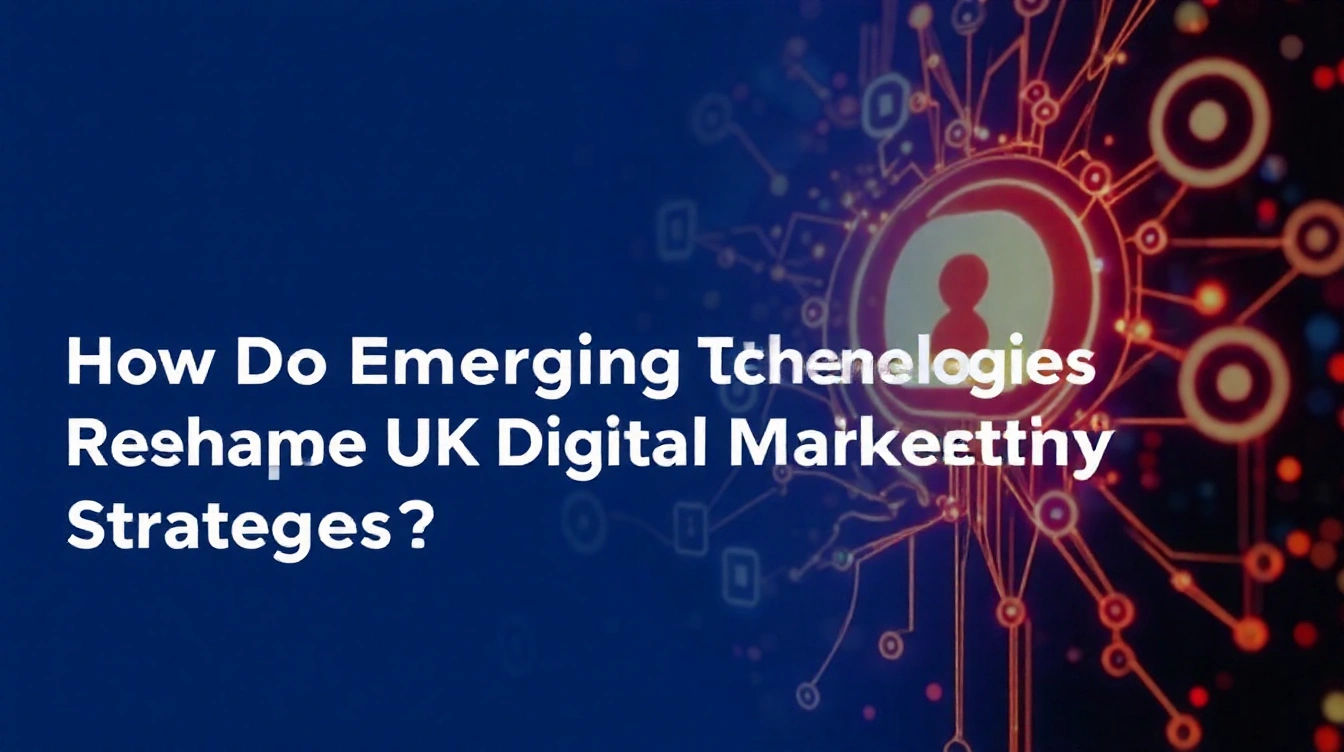Immediate impacts of emerging technologies on UK digital marketing strategies
Emerging technologies are rapidly transforming digital marketing UK by driving innovation in campaign management and customer engagement. One of the most significant shifts involves the integration of AI marketing tools, which enable marketers to automate tasks like audience segmentation, content creation, and real-time personalisation. This results in more efficient campaigns tailored precisely to consumer preferences.
Alongside AI, the adoption of AR/VR technologies has begun to reshape customer experience. UK brands are experimenting with immersive interfaces that allow potential buyers to interact with products virtually, improving engagement and decision-making. For example, virtual try-ons in fashion or interactive showrooms have provided compelling new touchpoints.
Additional reading : How Can Digital Marketing Transform the UK’s Tech Industry?
Early case studies highlight how these technologies boost conversion rates and customer loyalty. Businesses that swiftly embrace technology adoption in these areas gain a competitive advantage by delivering richer, more tailored experiences. As a result, these evolving tools are no longer optional but essential in the evolving landscape of UK digital marketing. This strategic shift towards leveraging AI and immersive tech underscores the growing importance of staying updated on emerging technologies.
Transformation of consumer engagement in the UK market
Consumers in the UK are witnessing a remarkable shift in consumer engagement, driven largely by the rise of chatbots and conversational marketing. Chatbots now serve as the frontline of digital interaction, providing instant responses and tailored assistance. Their ability to simulate human conversation enhances ease and satisfaction, reshaping user expectations for service quality.
Also to read : How can UK marketers improve customer engagement with augmented reality?
Personalisation is at the heart of these digital experiences across the UK. Businesses leverage data analytics to deliver predictive and personalised content, anticipating consumer needs before they arise. This approach improves relevance, making each interaction feel uniquely crafted. For example, retail brands adjust recommendations based on browsing history and purchase patterns, increasing both engagement and sales.
Changing consumer behaviour reflects this tech evolution. UK users now prefer seamless, interactive channels where they receive quick, relevant responses. The convenience of chatbots combined with highly personalised content has led to higher retention and brand loyalty. These innovations are not just enhancing communication but fundamentally redefining how UK consumers relate to brands in a digital-first environment.
Regulatory factors influencing technology adoption in UK digital marketing
Understanding UK marketing regulations is crucial for businesses adopting new digital tools. The UK’s data privacy framework, heavily influenced by the EU’s GDPR, places strict rules on how customer data can be collected, stored, and used. This affects many advanced marketing technologies, especially those that rely on personalisation and automated data-driven campaigns.
GDPR mandates explicit consent from users before their data can be processed, fundamentally shaping the way marketers deploy technologies. Automated campaigns must now ensure transparency and provide easy opt-out choices to respect consumer rights. This has compelled marketers to rethink strategies and build trust by prioritising data protection.
Ethical marketing technology goes beyond legal compliance; it incorporates respect for consumer privacy and fairness. Best practices include minimizing data collection to what is necessary, using anonymisation where possible, and regularly auditing technology for bias. Businesses that align technology use with these principles not only comply with UK and EU regulations but also strengthen customer relationships. Embracing these regulatory factors ensures responsible innovation without compromising effectiveness in digital marketing.
Statistical insights and UK case studies on technology-driven marketing success
Recent digital marketing statistics UK reveal significant growth linked to technology adoption impact. For instance, companies leveraging AI-powered tools report up to 30% higher conversion rates compared to traditional methods. UK-based firms embracing marketing automation see improvements in customer engagement and campaign efficiency.
One prominent case study highlights a UK retailer that integrated AI chatbots, resulting in a 25% increase in online sales within six months. Another example involves a financial services company using data analytics to tailor content, boosting email open rates by 40%. These case studies demonstrate how leveraging technology can deliver measurable benefits.
Leading UK brands have adopted emerging technology to optimize their campaigns systematically. They focus on personalized content delivery and real-time analytics, enhancing ROI and customer experiences. The technology adoption impact is clear: companies that invest thoughtfully in digital tools outperform competitors in market responsiveness and customer retention.
Understanding these case studies and digital marketing statistics UK provides valuable insights for businesses eager to harness technology-driven marketing success effectively.
Actionable insights for UK marketers adapting to emerging technologies
Adapting to technology in today’s digital landscape demands deliberate and strategic changes. UK marketer tips emphasize starting by assessing current digital marketing strategies to identify where emerging technologies can offer the most impact without disrupting compliance standards. This ensures a smooth transition and maintains regulatory integrity.
One critical step is to implement iterative testing with pilot campaigns, allowing marketers to measure effectiveness and tweak approaches in real time. For instance, integrating AI-driven analytics can enhance customer segmentation while staying GDPR-compliant, striking a balance between innovation and privacy.
Moreover, continual education through specialized online courses and UK-focused industry forums equips teams with the latest skills. Using advanced tools like marketing automation platforms tailored for the UK market helps maintain agility. These resources support the ongoing evolution required for effective digital marketing strategies.
By embracing a measured, informed approach, UK marketers can seamlessly blend emerging technologies with existing frameworks, leveraging cutting-edge methods while upholding legal requirements. This dual focus not only optimizes performance but also builds consumer trust in an increasingly tech-driven environment.









